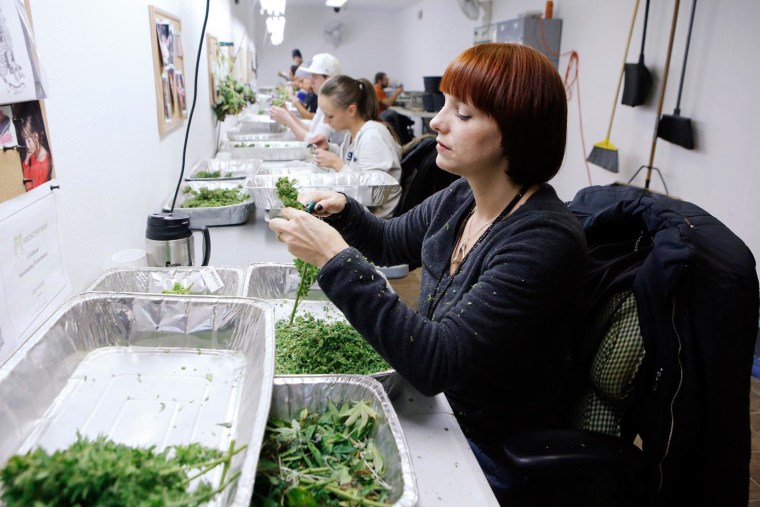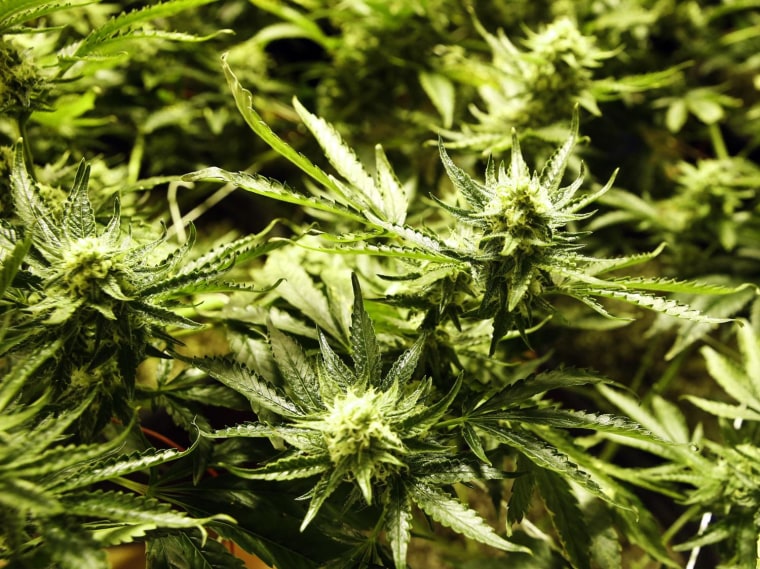Colorado’s budding pot industry is set to flourish in the new year, as the state becomes the first in the country to allow recreational marijuana sales starting Jan. 1.
As retailers get ready to open for business, here’s a primer on buying weed, where you can puff with impunity and what won't fly in Colorado:
You can legally purchase pot from state-licensed marijuana retailers. Around a dozen are expected to begin selling in Denver on Wednesday, with about 20 others opening elsewhere in the state, according to the Colorado chapter of NORML, a nonprofit seeking to make marijuana use legal.
While the state has more than 500 medical dispensaries, only 136 have sought retail licenses so far, Reuters reported.
In addition, some towns have already banned — or are looking to ban — recreational marijuana sales entirely.
You must be at least 21 to buy. Adults with a valid Colorado ID can purchase up to one ounce of marijuana, while nonresidents can buy up to a quarter ounce. Anyone under 21 caught using marijuana is still subject to potential jail time and fines.
In Denver, however, the City Council voted last week to decriminalize pot possession for those ages 18 to 21 when caught with no more than an ounce of marijuana. They would be given a fine, similar to a parking ticket, instead of possible jail time.

Weed can be bought in different forms. While the majority of the merchandise is something to be smoked, some retailers are also selling marijuana in the edible variety: brownies, cookies, carbonated drinks.
Another legal form are vaporizer pens — similar to electronic cigarettes — which use cannabis oil.
Have your cash handy. Retailers are running as cash businesses. That’s because credit cards, debit cards and checks are all tied into federal rules and regulations, and the feds still consider marijuana an illegal crop.
That could change if the U.S. Treasury Department loosens the rules.
Smoking pot in public is still illegal.You’ll have to go to a private residence if you want to light up. That’s because smoking cigarettes is already prohibited in many work and public places under the state’s Clean Indoor Air Act. Hotels, however, can be safe zones if the owners permit it.
Additionally, lighting up on federal property remains illegal, which is something to watch out for if you’re vacationing in a park or ski resort.
Sharing is OK. If you’re legally allowed to buy marijuana, you can share it with another person who is also legal to have it — but no more than an ounce. Also, no money can change hands.
Don’t carry your cannabis outside of Colorado. While the federal government decided not to challenge the state’s law, passed by voters in 2012, it’s technically still illegal to possess the drug.
Attorney General Eric Holder has said the Obama administration is taking a more pragmatic approach to enforcement: Prosecutors will continue to target trafficking of marijuana across state lines and its sale to minors, but they won’t go after marijuana dispensaries simply because of how much they sell.
Driving under the influence also applies to being high. Under state law, drivers found to have 5 nanograms or more of THC — the drug’s active ingredient — in their system can be ticketed for impaired driving.
Medical pot users and advocates have said the THC threshold is too low, and that some users may already have trace amounts in their systems but are essentially sober enough to drive.
